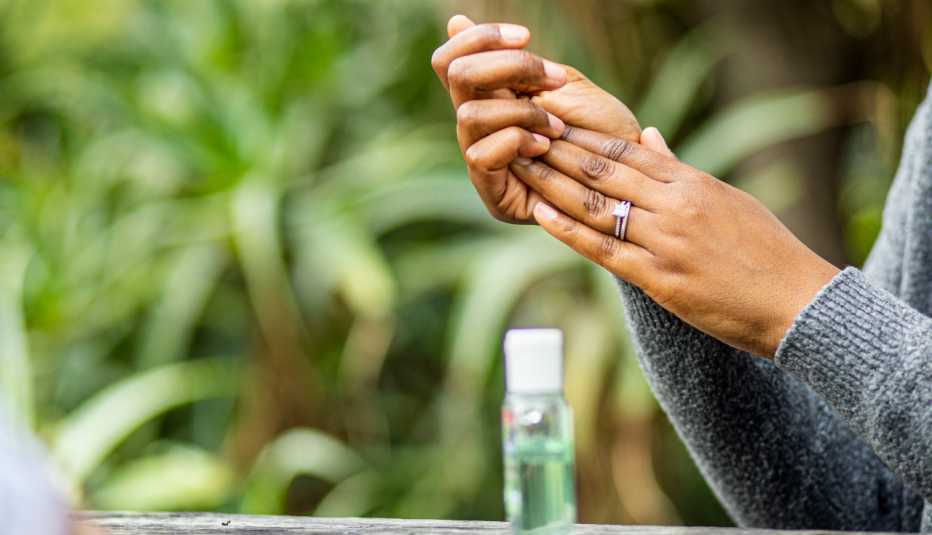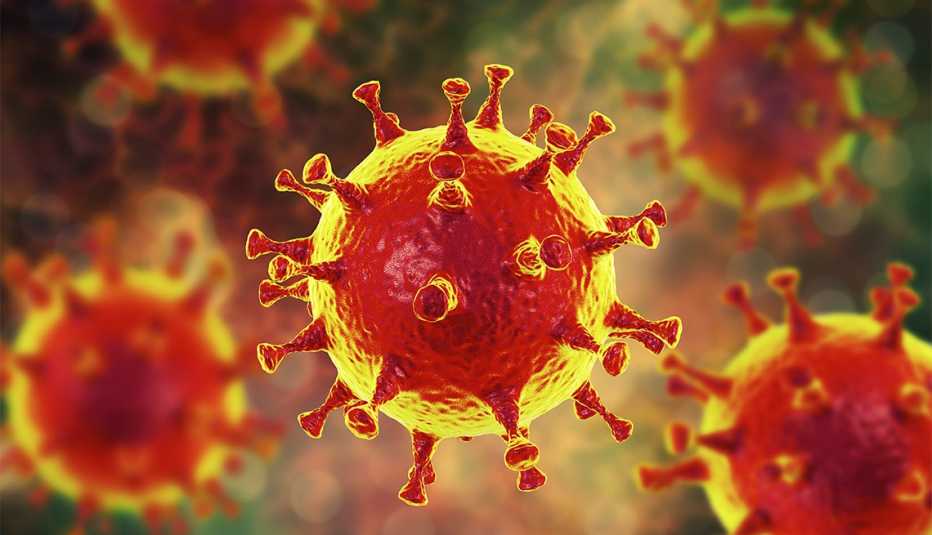AARP Hearing Center
The U.S. Food and Drug Administration (FDA) is warning consumers that ingesting hand sanitizer packaged in beer cans, vodka bottles or food pouches can pose a risk of serious injury or death — particularly for children.
Drinking only a small amount of hand sanitizer is potentially lethal to a young child, who may be attracted by a pleasant smell or brightly colored bottle, the FDA said in a press release issued Thursday.
The federal agency issued the warning after finding that certain hand sanitizer packaging has confused some consumers. In one case, a consumer purchased a bottle of hand sanitizer he thought to be drinking water. In another case, a retailer reported a hand sanitizer being sold in what looked like a snack pouch with printed cartoons aimed at children. The FDA has also found some hand sanitizers that contain food flavors, such as chocolate or raspberry.
"I am increasingly concerned about hand sanitizers being packaged to appear to be consumable products, such as baby food or beverages. These products could confuse consumers into accidentally ingesting a potentially deadly product. It's dangerous to add scents or food flavors to hand sanitizers — which children could think smells like food, then eat and get alcohol poisoning,” said FDA Commissioner Stephen M. Hahn, M.D.
In March, the FDA adopted a policy to encourage the manufacturing of hand sanitizer in order to meet increased consumer demand during the COVID-19 outbreak. This allowed non-drug manufacturers to make alcohol-based hand sanitizers during the public health emergency. Many craft brewers and distillers have done just that — bottling hand sanitizer instead of beer, vodka or gin.
FDA guidance to manufacturers stipulates that the alcohol should be “denatured,” typically by mixing in an additive to make it smell foul, taste bad or induce nausea. “Denaturing is critical because there have been reports of adverse events, including deaths, from ingestion of hand sanitizer. Most reports are for unintentional ingestion in young children,” the guidance said.
Along with the consumer caution, the FDA is warning manufacturers not to sow confusion through packaging or marketing of hand sanitizers.






































































